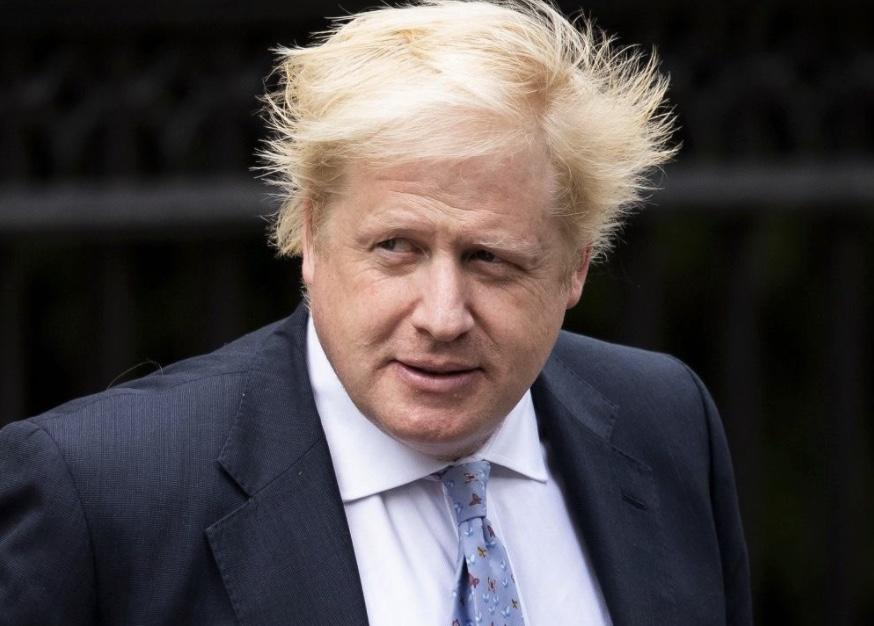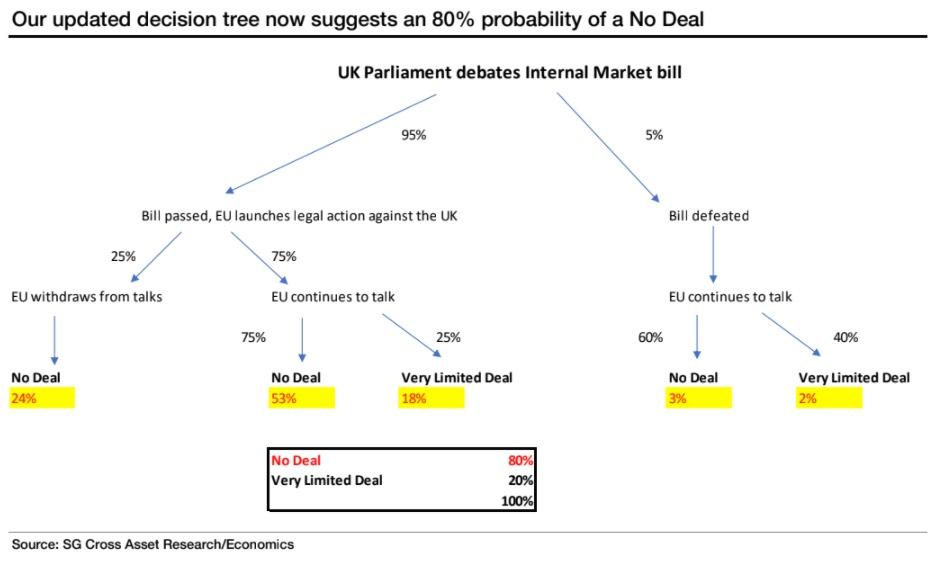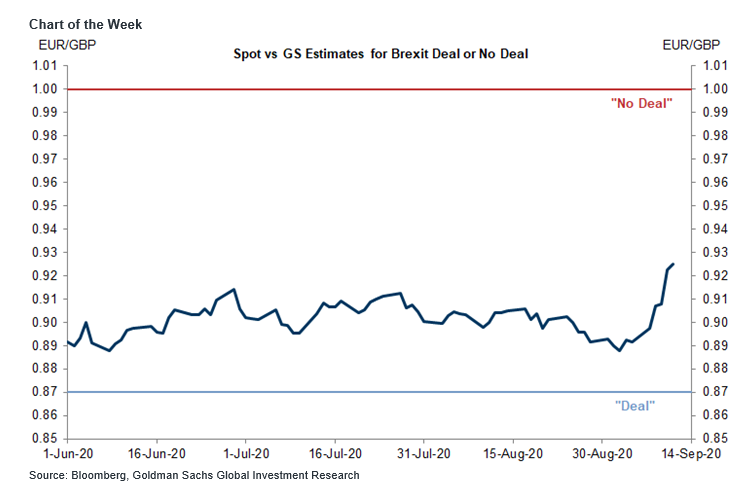Biden Threatens Boris Johnson: ‘No US Trade Deal Unless Good Friday Accord Respected’
Tyler Durden
Fri, 09/18/2020 – 04:15
In a sign of just how dire the situation is getting for the EU, which has last pretty much all of its leverage over UK Prime Minister Boris Johnson now that he has put down yet another Tory rebellion and marshalled the support he needs to pass the Intermarket Bill.
Johnson struggled mightily earlier this werk, as Sir Richard Keen, a Tory MP and advocate general for Scotland quit the government, saying he found it increasingly difficult to reconcile the government’s goals with the existing law, and nearly 2 dozen Tories said they would oppose the so-called Intermarket Bill – which effectively allows the government to bypass the Brexit withdrawal treaty when it comes to the treatment of Northern Ireland – unless BoJo agreed to a Parliament “lock” – that is, another emergency vote later on down the road that would allow Parliament to trigger the law.
Speaking to the FT, a reported top EU official allegedly said that the EU opposes the Intermarket Bill in its entirety, and that a parliamentary lock simply wouldn’t cut it. “No, no no,” the official said Brussels wanted BoJo to remove all the offending powers, not just “put them in an ’emergency use only box'”.
The bill still has a long way to go before it becomes law, with a more critical phase beginning next week. And Johnson must still contend with the House of Lords, which sees itself as a guardian of the rule of law, and doesn’t take kindly to potentialbreaches of international treaties.
But in a sign of just how shaken up Brussels is over Johnson’s take-no-prisoners approach, they’ve brought in former Vice President Joe Biden to try and reason with the prime minister. And they managed to bring Biden in by drawing on America’s role in the Northern Ireland peace process.
In a series of tweets, the Democratic presidential candidate warned the UK that it must honour Northern Ireland’s 1998 peace agreement as it withdraws from the EU. If it doesn’t, Biden will ensure that the UK won’t get a trade deal with the US.
We can’t allow the Good Friday Agreement that brought peace to Northern Ireland to become a casualty of Brexit.
Any trade deal between the U.S. and U.K. must be contingent upon respect for the Agreement and preventing the return of a hard border. Period. https://t.co/Ecu9jPrcHL
— Joe Biden (@JoeBiden) September 16, 2020
Biden (or more likely, Biden’s staff) were responding to a push from Democrat Eliot Engel, the leader of the House Foreign Relations Committee.
The PM, meanwhile, argues that London must violate parts of the withdrawal agreement if it hopes to preserve the 1998 peace accord. Of the two agreements, the Good Friday Accords are clearly the more critical, Johnson argued.
“The PM has been clear throughout that we are taking these steps precisely to make sure that the Belfast Agreement is upheld in all circumstances and any harmful defaults do not inadvertently come into play,” a spokesman for the PM said.
Brussels is threatening to walk away from talks should the UK pass the Intermarket Bill, even with the agreed upon amendments. According to strategists at Societe Generale, this looks inevitable. In a research note published Thursday, the team offered a glimpse of what UK-EU trade under WTO terms would look like.
What would trading under WTO terms look like?
- A No-Deal Brexit means the EU would trade with the UK under the WTO terms from 1 January 2021. The first obvious implication is that tariffs will apply to goods as defined by the relevant Most Favoured Nation clause. The EU average tariff rate is 5%, but this masks large sectoral differences: 8.9% for consumer goods (and up to 42% for dairy products) vs 2.8% for capital goods – with some goods at 0% (e.g. cotton). However, the tariffs are only part of the problem. Non-tariff barriers will have much larger negative consequences:
- For goods, customs formalities will apply (supervisions, declarations and controls); VAT will be due for all goods imported in the EU but exempted if exported to the UK; the Sanitary and Phyto-sanitary standards will no longer be in place, therefore livestock and food products would have to be checked at the border. As a result, even though contingency measures are likely to be taken, chaos at the borders and supply chain disruptions look unavoidable, possibly leading to food, medicine or other goods shortages.
- Services would be subject to several barriers to trade (vs. cross-border trade in the Single Market) ranging from non-recognition of professional qualifications to non-regulatory equivalence. As a result, several sectors will face much larger trade restrictions than currently, in particular in transport, insurance, accounting or legal services. Again, the EU may unilaterally decide to temporarily waive these restrictions.
Source: SocGen
That leaves odds of ‘No Deal’ at 80%, the highest they’ve been during the yearslong trudge toward an EU exit for the UK. But Wall Street banks are all over the place when it comes to Brexit. Analysts at Goldman Sachs, an American bank that doesn’t have the home-field advantage in Europe that SocGen enjoys, has taken the opposite approach, arguing that the market is overpricing the odds of a ‘no deal’ exit.
Traders could make a tidy profit if they’d be willing to sit through some short-term volatility, GS has said.
Then again, Goldman’s FX calls haven’t always worked out so well for its clients.
via ZeroHedge News https://ift.tt/3hPLAP7 Tyler Durden


